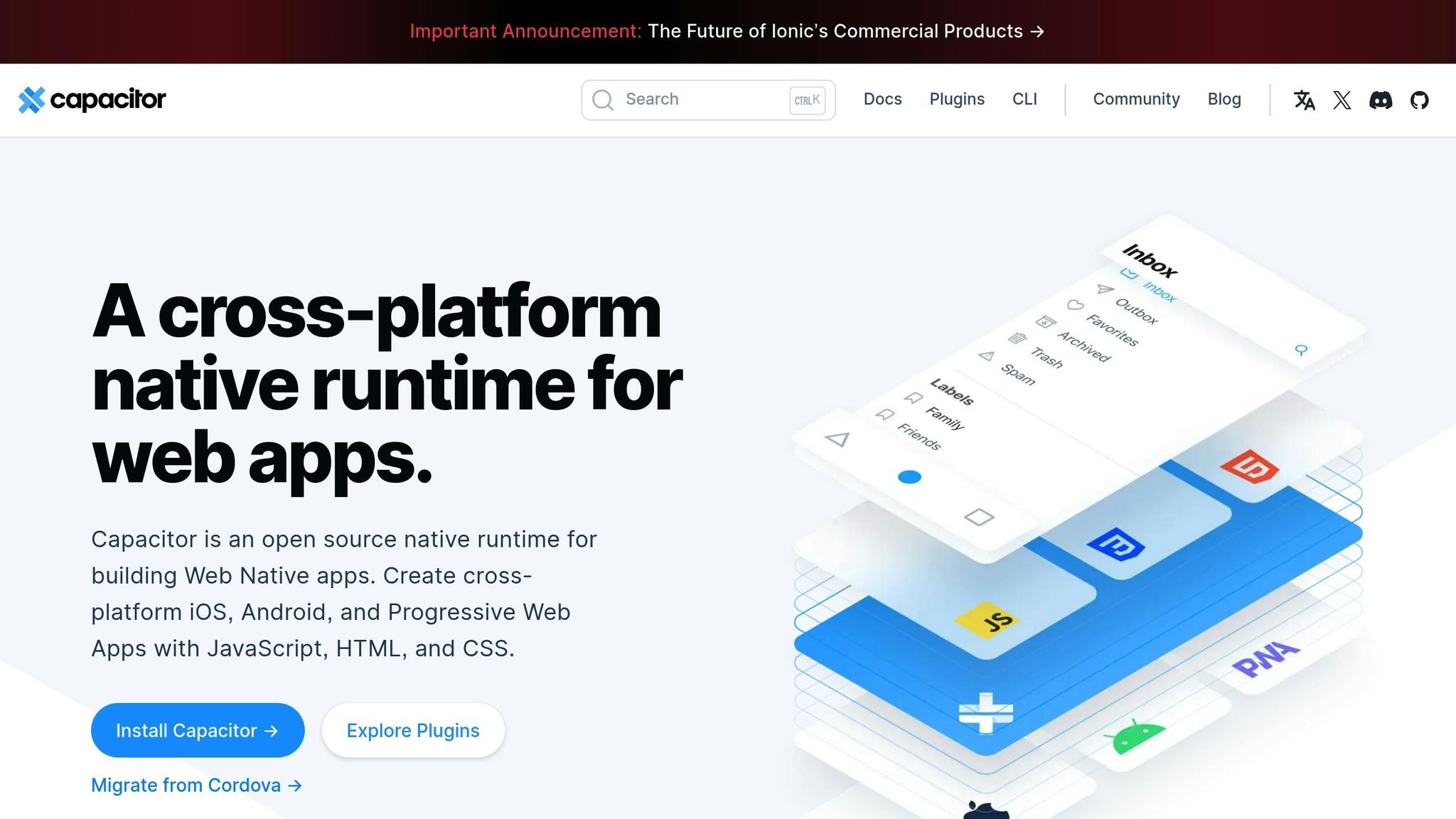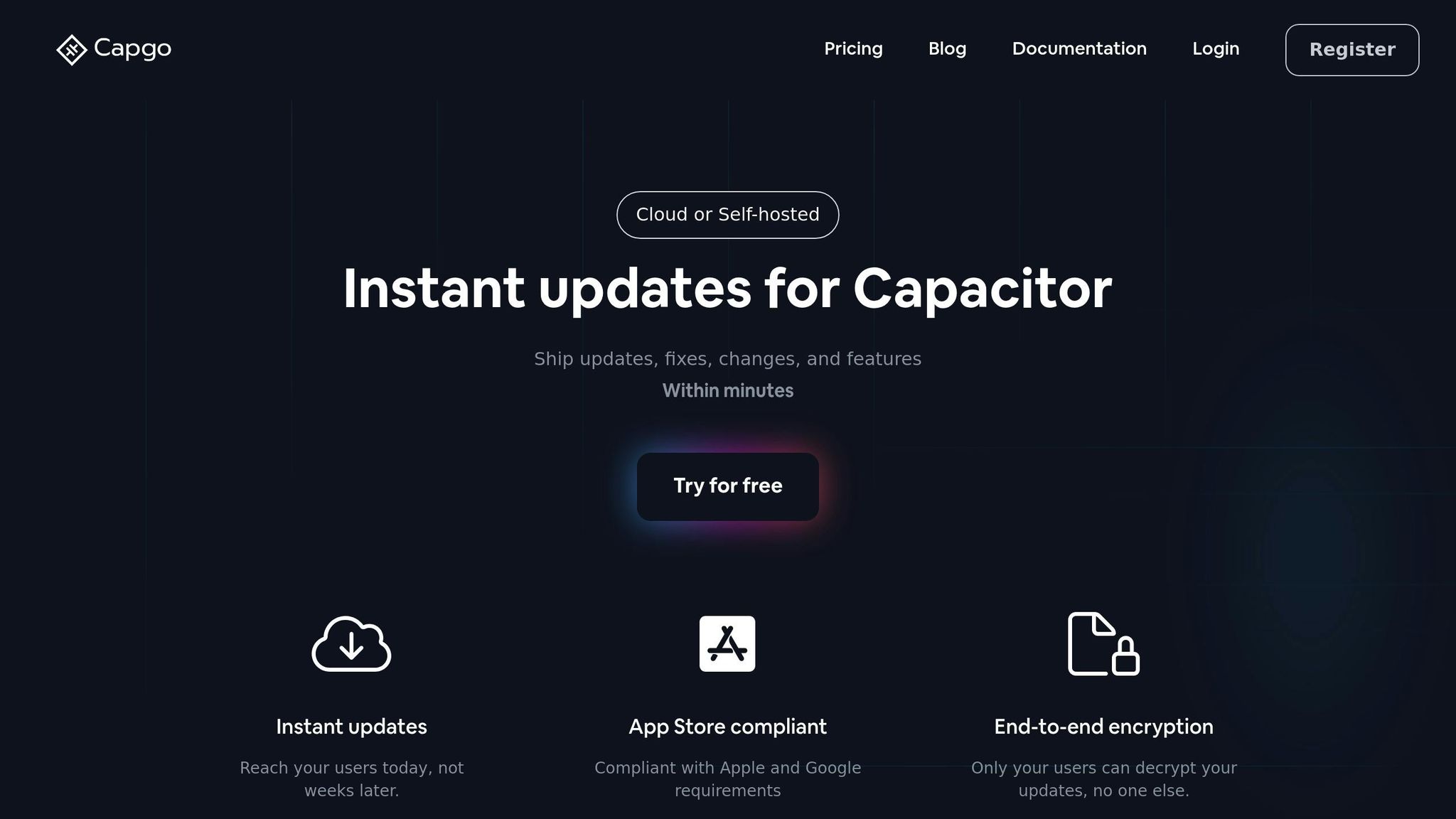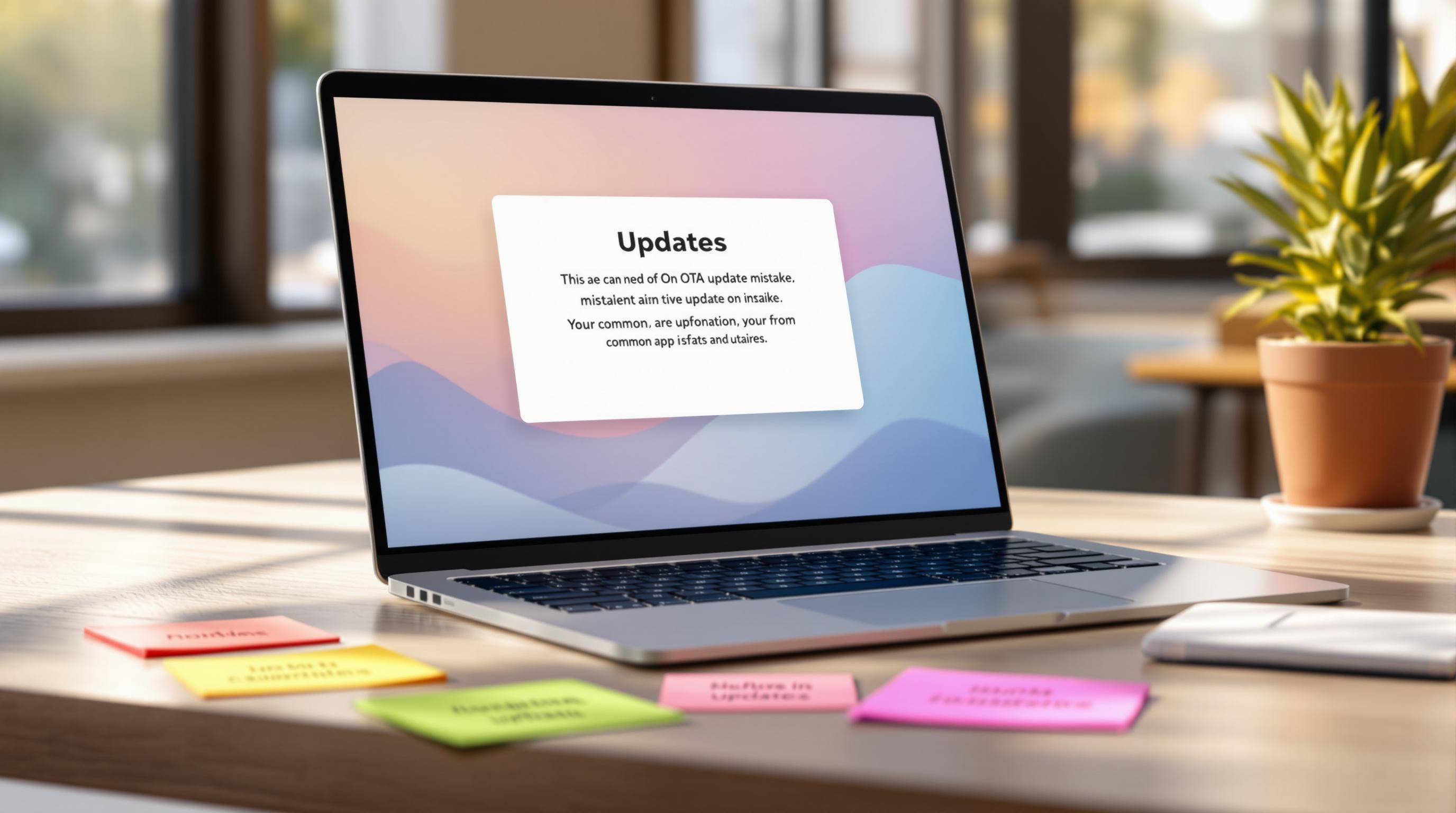Version mismatch errors in Capacitor apps can disrupt builds, cause runtime crashes, and delay updates. These issues arise when core packages, plugins, or dependencies are misaligned. Here’s how to quickly resolve them:
-
Common Causes:
- Partial updates or dependency conflicts.
- Errors in
package.jsonor pod files. - Automatic updates creating inconsistencies.
-
Quick Fixes:
- Run
npx cap doctorornpm list @capacitor/*to spot mismatches. - Align versions in
package.json(e.g.,@capacitor/core,@capacitor/ios,@capacitor/android). - Use
npm installto update all core packages and plugins.
- Run
-
Prevent Future Issues:
- Lock versions in
package.json(e.g.,"@capacitor/core": "5.0.0"). - Automate version checks with CI/CD tools.
- Use live update tools like Capgo for faster fixes.
- Lock versions in
Resolving the No Matching View Exception in Capacitor …

Finding Version Mismatch Problems
You can uncover version mismatches using these steps:
Error Signs and Messages
Start by examining error outputs:
- Build failures mentioning “incompatible version”
- Runtime exceptions referring to “version mismatch”
- Console warnings about dependency conflicts
- iOS pod install errors highlighting version issues
These error messages, whether from the terminal or your IDE, often reveal conflicts. Pay attention to warnings that include version numbers - they can help you pinpoint the problem.
Command Line Checks
Use command line tools to confirm version consistency:
npx cap doctor: Checks the health of Capacitor and flags mismatches.npm list @capacitor/core @capacitor/ios @capacitor/android: Displays installed versions, making it easy to spot inconsistencies.
Config File Review
Lastly, review your configuration files to ensure version alignment.
package.json
{ "dependencies": { "@capacitor/core": "5.0.0", "@capacitor/ios": "5.0.0", "@capacitor/android": "5.0.1" // Version mismatch! }}capacitor.config.json
{ "appId": "com.example.app", "appName": "MyApp", "plugins": { "SomePlugin": { "version": "3.0.0" } }}Check for consistency across:
- Core Capacitor packages
- Platform-specific packages (iOS/Android)
- Plugins and their dependencies
Keeping these versions aligned helps avoid compatibility issues.
Fixing Core and Plugin Versions
Core Package Updates
To update your core Capacitor packages, use the following npm command:
npm install @capacitor/core@latest @capacitor/ios@latest @capacitor/android@latestIf you need a specific version, replace @latest with the desired version number. For example:
npm install @capacitor/core@5.0.0 @capacitor/ios@5.0.0 @capacitor/android@5.0.0Once the updates are complete, sync your project with:
npx cap syncPlugin Version Fixes
Ensure your plugins are compatible with the Capacitor version you’re using. Update them to tested and compatible versions, and make sure to test the functionality after each update.
If a plugin requires Capacitor 5.x but you’re using 6.x, you have two options:
-
Update the plugin to the latest version:
Terminal window npm install @plugin-name@latest -
Downgrade Capacitor to match the plugin’s requirements:
Terminal window npm install @capacitor/core@5.x
For updates that involve breaking changes, additional adjustments may be necessary.
Major Version Changes
When transitioning to a new major version, follow these steps:
-
Backup Your Project: Create a full backup before starting any updates.
-
Check the Changelog: Review the official changelog for any breaking changes that may affect your project.
-
Update Dependencies: Upgrade your Capacitor packages to the required versions. For example:
Terminal window npm install @capacitor/core@7.0.0 @capacitor/ios@7.0.0 @capacitor/android@7.0.0
Capgo provides live updates for Capacitor 8, allowing you to apply fixes without needing app store approvals [1].
Avoiding Future Version Conflicts
Version Lock Tools
Lock files like package-lock.json or yarn.lock help ensure everyone on your team uses the same dependency versions. To avoid unexpected updates, define exact version numbers instead of using caret (^) or tilde (~) symbols:
{ "dependencies": { "@capacitor/core": "5.0.0", "@capacitor/ios": "5.0.0", "@capacitor/android": "5.0.0" }}Automating Updates
Set up automated version checks in your CI/CD pipeline to flag conflicts early. For example, use the following command to check for outdated dependencies:
npm outdated @capacitor/*You can integrate this step into tools like GitHub Actions, GitLab CI, or Jenkins to ensure consistent builds. For even more control, consider using Capgo’s update system to simplify the process.
Using Capgo Updates

Capgo provides a live update system that resolves version conflicts quickly. According to their data, 95% of active users install updates within 24 hours [1].
“We rolled out Capgo OTA updates in production for our user base of +5000. We’re seeing very smooth operation almost all our users are upto date within minutes of the OTA being deployed to @Capgo.” – colenso [1]
Here’s how to make the most of Capgo:
- Configure multiple distribution channels for testing purposes.
- Set up automatic rollbacks in case critical issues arise.
- Monitor success rates to ensure updates are effective.
- Use staged rollouts to minimize risks.
For teams handling multiple app versions, Capgo’s channel system allows you to test updates with specific user groups before a wider release. This approach has achieved an 82% global success rate for updates [1].
Summary
Quick Solutions Guide
Facing version mismatch errors in Capacitor apps? Here are some quick actions you can take:
- Lock dependency versions in your
package.jsonfile and use lock files to ensure consistency. - Run
npm outdated @capacitor/*to identify outdated dependencies. - Address conflicts by utilizing Capgo’s staged rollouts [1].
These steps summarize the diagnostic methods discussed earlier.
Best Practices
To ensure long-term stability, consider these best practices for managing Capacitor versions effectively. These methods have been successfully applied in over 750 production apps [1].
-
Version Control
- Keep dependency versions consistent.
- Synchronize versioning across all team environments.
- Clearly document version requirements for easy reference.
-
Update Management
Rodrigo Mantica shares:“We practice agile development and @Capgo is mission-critical in delivering continuously to our users!” [2]
-
Monitoring and Recovery
Regularly monitor dependencies to identify conflicts early. Proper monitoring has shown that 95% of active users can update within 24 hours [1]. -
Key Implementation Tips
- Automate version checks within CI/CD pipelines.
- Use testing channels before full distribution.
- Maintain rollback options for unexpected issues.
- Track update success rates to gauge performance.




